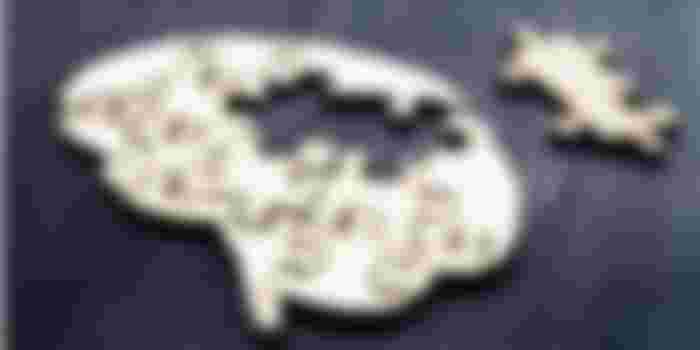Our memory has a different spiral structure. How can we be sure that a memory we remember is the same as it really is? Current neuroscience studies show that you unwittingly reconstruct your memories of events that have occurred in the past to match the images you currently have or prefer.

This information may sound irritating to you, but it has functional aspects as well. In a study, children who had a very problematic home life and stayed in a psychiatric clinic for a while were interviewed after 30 years, and it was found that those who had a more stable and traditional life remember their childhood "more normal". To put it another way, these people reconstructed their memories of their past experiences through their present situation, thereby reducing the impact of negative events on them.
All this information also explains why psychotherapy methods that are effective today are effective. Because when clients are asked to tell about their past, they can reconstruct their memories in accordance with the framework drawn by the present by going backwards from the current situation (or, more accurately, calling the past to the present). In a way that supports this information, he says, “It is not entered into memory like entering an archive”. Our relationship with our memory is different from our relationship with an archive. The thought that we can enter our memory like an archive and get what we want is a very naive thought. To think that we can take our memory in our lap and look at it like looking at an album is a sign that we do not know memory at all. Memory has a dynamism. The records of the memory do not stop where they are. Records affect each other. It is affected by what happened and what happened. Records are transformed and formed by various effects. They are deleted, they are rewritten. Memory is both different and more than what we recall.

Memory and recall is always a constructive action. In other words, factors such as your past experiences, the information you receive after the event, perceptual factors, and even the desire to remember certain events more than others affect what you will remember.
In studies on eyewitnesses, it has been found that the later conversations of the eyewitnesses with each other about the incident distort personal memories, people have difficulty in distinguishing their own memories from the memories of the other, and those remembered tend to be in common. There are many interesting studies that show how remembering is impaired and mistaken in eyewitness situations. While eyewitnesses include situations where events of a particular significance are witnessed, we are actually all witnesses of our own or the lives of others. In this context, studies in this area also give an idea about the normal functioning of memory. Eyewitness studies show that what people remember may be different from the original event and is reconstructed by filling in small gaps in the plot by inference.

To summarize, you are unwittingly reconstructing your past memories to fit the belief system you currently have or prefer. Eyewitness studies also show that what people remember may be different from what actually happened and that small gaps in the plot are reconstructed through inference. Anyway, the techniques we call psychotherapy work because the brain and memory are made in accordance with this working principle.
Recall Therapy is a holistic therapy technique synthesized with the useful points of many therapy approaches, which I have developed based on my 15 years of professional experience and training. It is a technique that focuses on the working principle of the mind (nervous system), is based on trauma and is focused on the source of the problem. In a Recall Therapy session, first of all, your life story is listened to. Your life story until today constitutes your "timeline".

First of all, in your timeline between the ages of 0-7, the emotional environment you grew up in and your relationships with your parents are determined. Since the development speed of the brain (neuroplasticity) is very fast during this period, the effect of what is experienced is also strong. Because anything that happened during this period and left a trace can appear in the same scene in the future and cause you to have various problems in business, relationships or health. Usually "unfinished business" with parents awaits resolution during adolescence and adulthood.
While doing these, event, person, body and object methods are used. The incident method is the first and easiest way to overcome a problem whose history is known. In the event method, the problem is narrated by "recalling". This event can be any event that takes place at an unexpected moment such as trauma, crisis, and then makes you feel emotionally alone, helpless and worthless with events that life is not like before. Accordingly, the flow of the mind is interrupted by an event, and the mind repeats the same event to draw attention to the problem and continues until the problem is dealt with. This is also called the "event of existence". It is recorded in the timeline of the mind before the event, as the event of existence, and as the echoes after the event. The echoes after the event are like repetitions of the event and the scenario remains the same even if the people, setting and environment change.

Nowadays, with the development of technology, we have some important information about the basic working principles of the brain. Especially the fact that every time we recall an event from memory, we re-narrate the memory with our existing emotions and knowledge is very important. As I mentioned above, this is the main reason psychotherapy is healing. In conclusion, I want to ask you, if your brain is constantly changing (neuroplasticity) whether you like it or not, and you re-narrate your memories every time you recall, why not turn it into a story that works for you?
I wish you days that you are healthy and whole.





Beautiful👍👍👍👍